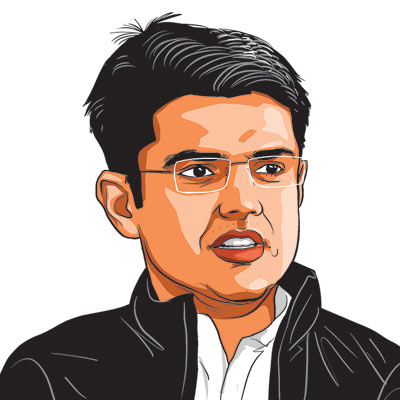Opinion A more inclusive architecture
At the two-day India Internet Governance Conference in the capital beginning today,the question is: who should govern the internet?
The internet was invented as an experimental technology to connect a handful of researchers,but today it pervades almost all aspects of our lives. It is a source of information and entertainment,a vehicle for commerce and philanthropy,and an important globalising force. Only 6 per cent of the worlds population was online in 2000. This increased to 30 per cent in 2010. With the adoption of IPv6,which has increased the number of possible internet addresses by a magnitude,the number of networked devices is expected to touch 15 billion by 2016,twice the world population. The amount of information is increasing exponentially; it doubled between 2010 and 2011,and doubled yet again the next year. Global monthly information flows are expected to exceed 10 exabytes (1 followed by 19 zeroes) by 2016.
In India,there are over 930 million mobile subscribers and 120 million Indians access the internet. Although this is only 10 per cent of our population,it is enough to make India the third largest internet community in the world. Most new users are accessing the internet through mobile devices. Although smartphones are only 2.5 per cent of Indias mobile market at present,the segment is expected to grow by around 55 per cent annually between 2011 and 2016. The Rs 20,000 crore government funded National Optical Fibre Network will take gigabit capacity bandwidth right up to the panchayat level. Our ongoing and planned e-learning,telemedicine,e-governance and financial inclusion initiatives will ride on this network to boost our growth across sectors and enable closer government-citizen interface.
The government believes in absolute freedom of the internet and acknowledges its potential to realise our constitutionally enshrined commitments to social justice,equitable growth and freedoms available to our citizens. Like all widely available communication technologies,the internet is a democratising force in our society,just like print and electronic media. Our massive investments in IT are proof of these beliefs and of our endeavour to deliver connectivity to each one of our citizens.
This powerful global phenomenon is connecting not only individuals,but also financial,commercial and other critical institutions across the planet. It has graduated to a strategic resource. Unprecedented amounts of personal information from personal data,financial information,surfing and online spending behaviour,location-based information resides in remote servers. Our dependence on the internet and connected technologies for our simple and complex needs necessitates us to deliberate its underlying structures. Today,almost the entire infrastructure of the internet is owned and operated privately. The root servers that form the core of the internet are concentrated in a handful of countries. Europe and North America together have only one-third of the internet population,but two-thirds of the root servers,reflecting early introduction and adoption of the internet there. But today,Asia has 45 per cent of the internet population,but only 17 per cent of these root servers.
Apart from uneven control of internet resources,there is the issue of cyber crime. It has emerged as a global threat as attacks in cyberspace are increasing each passing day. As per a recent report,cyber crime has become the second most common type of crime in the financial services industry just in the last year. Connectivity of critical systems like transportation,financial networks and electrical grids to the internet means that seemingly isolated failures can set off cascading consequences across sectors. Cyber threats are also increasingly complex,involving large-scale organisational resources,and can be carried out at marginal incremental cost from behind multiple screens to assure anonymity and deniability. IT resources are also playing an increasing part in all kinds of crime and a lot of criminal activity in cyberspace spanning many jurisdictions.
The need to safeguard the interests of every citizen and the international dimensions of information flows make a compelling case for greater public policy engagement and international cooperation. The humongous nature of IT connectedness and its attendant issues was realised as early as 2005,when the World Summit on Information Society met in Tunis and agreed to enhanced cooperation to enable stakeholders to carry out their roles and responsibilities in international public policy issues pertaining to the internet.
Even though it was born as a US government initiative,the internet today is a powerful symbol of innovative entrepreneurial spirit and a hotbed for creativity across the globe. It has managed to transcend,for the human race,the barriers of geography,religion and ethnicity that seemed insurmountable for centuries.
As captured by the Tunis consensus,we believe that internet governance should be more participatory at a global level. Participation,representation,openness and accountability are interrelated imperatives. Our approach to the subject is also consistent with the broader thrust of government policy to make our international institutions more inclusive and reflective of present-day realities.
Most of the expansion of the information society will come from Asia,Africa and other areas of emerging growth. Internet penetration outside Europe and North America has changed the demography of digital participation. While internet growth in mature markets has slowed to a crawl,it proceeds at blistering speed in developing countries. Already,over 50 per cent of internet users are outside the developed world. This trend will only amplify in future. Together with other stakeholders,we have to imagine and implement internet governance that takes into account the aspirations,expectations and sensitivities of the entire global community. As the internet grows and as we all become more immersed digitally,we have the right to expect and bequeath our present and future generations a more mature and participative internet.
The writer is Union minister of state for communications and information technology


